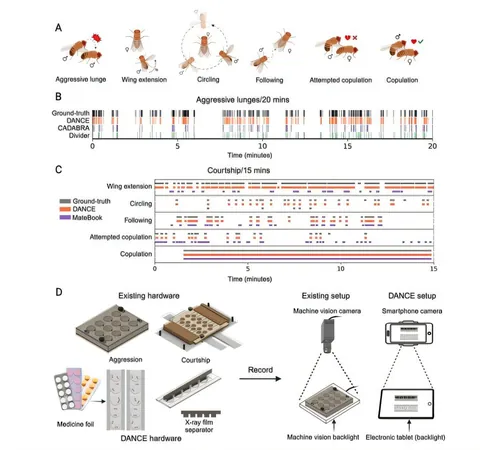
Groundbreaking Therapy Shows Promise in Fighting Pediatric Brain Tumors!
2025-03-21
Author: Rajesh
Groundbreaking Development
In a groundbreaking development for pediatric medicine, a collaborative team led by physician scientists at the Dana-Farber/Boston Children’s Cancer and Blood Disorders Center has reported encouraging results from the first clinical trial of the targeted therapy avapritinib in young patients suffering from high-grade glioma, a highly aggressive form of brain tumor.
Study Results
The study, which was published in Cancer Cell, reveals that avapritinib, an FDA-approved drug for treating certain adult cancers, proved to be generally safe and effective, resulting in tumor shrinkage visible on brain scans in 3 out of 7 patients. These initial results represent a significant leap forward in a field where treatment options have been historically limited and survival rates are dismal, with many children facing a median survival of less than 18 months following diagnosis.
Mechanism of Action
Avapritinib works by targeting the platelet-derived growth factor alpha (PDGFRA) protein, which is known to be overactive in some pediatric high-grade gliomas, leading to unchecked cell growth. Importantly, this new therapy has the capability to cross the blood-brain barrier, enabling it to directly impact tumors located in the brain.
Expert Insights
Lead author Dr. Mariella Filbin, a prominent figure in the research community and co-director of the Brain Tumor Center at Dana-Farber, stated, “In a highly aggressive disease with no effective targeted treatment options available, we were thrilled to observe a response in patients who are often considered out of options.” This research also builds on findings that revealed approximately 15% of pediatric high-grade glioma cases have gene alterations that activate PDGFRA, indicating a clear pathway for targeted intervention.
Challenges and New Hope
Previous attempts to target PDGFRA proved challenging, largely due to the inadequate effectiveness of earlier drugs used. However, avapritinib's highly selective nature and effective delivery to the brain offers new hope. The promising results from preclinical studies prompted the team to partner with institutions like the University of Michigan and the Medical University of Vienna to commence compassionate use programs for patients in dire need.
Future Plans
Furthermore, the research doesn’t stop here. Filbin's team plans to explore which specific genetic alterations in tumors might predict the response to avapritinib, aiming for a tailored approach to treatment. Additionally, they are working on combination therapies that pair avapritinib with other FDA-approved medications to enhance effectiveness and combat the potential for treatment resistance.
A Beacon of Hope
In a testament to the life-changing impact of this research, Dr. Filbin expressed, “It is heartbreaking to inform families when a child’s tumor returns despite standard therapies. Our findings with avapritinib are a beacon of hope for patients with PDGFRA alterations, and we are optimistic about developing combination strategies that can further improve outcomes.”
Conclusion
As investigations continue, there is renewed hope in the quest for effective therapies against one of the most challenging cancers, which could herald a new era of treatment options for afflicted children around the globe.



 Brasil (PT)
Brasil (PT)
 Canada (EN)
Canada (EN)
 Chile (ES)
Chile (ES)
 Česko (CS)
Česko (CS)
 대한민국 (KO)
대한민국 (KO)
 España (ES)
España (ES)
 France (FR)
France (FR)
 Hong Kong (EN)
Hong Kong (EN)
 Italia (IT)
Italia (IT)
 日本 (JA)
日本 (JA)
 Magyarország (HU)
Magyarország (HU)
 Norge (NO)
Norge (NO)
 Polska (PL)
Polska (PL)
 Schweiz (DE)
Schweiz (DE)
 Singapore (EN)
Singapore (EN)
 Sverige (SV)
Sverige (SV)
 Suomi (FI)
Suomi (FI)
 Türkiye (TR)
Türkiye (TR)
 الإمارات العربية المتحدة (AR)
الإمارات العربية المتحدة (AR)